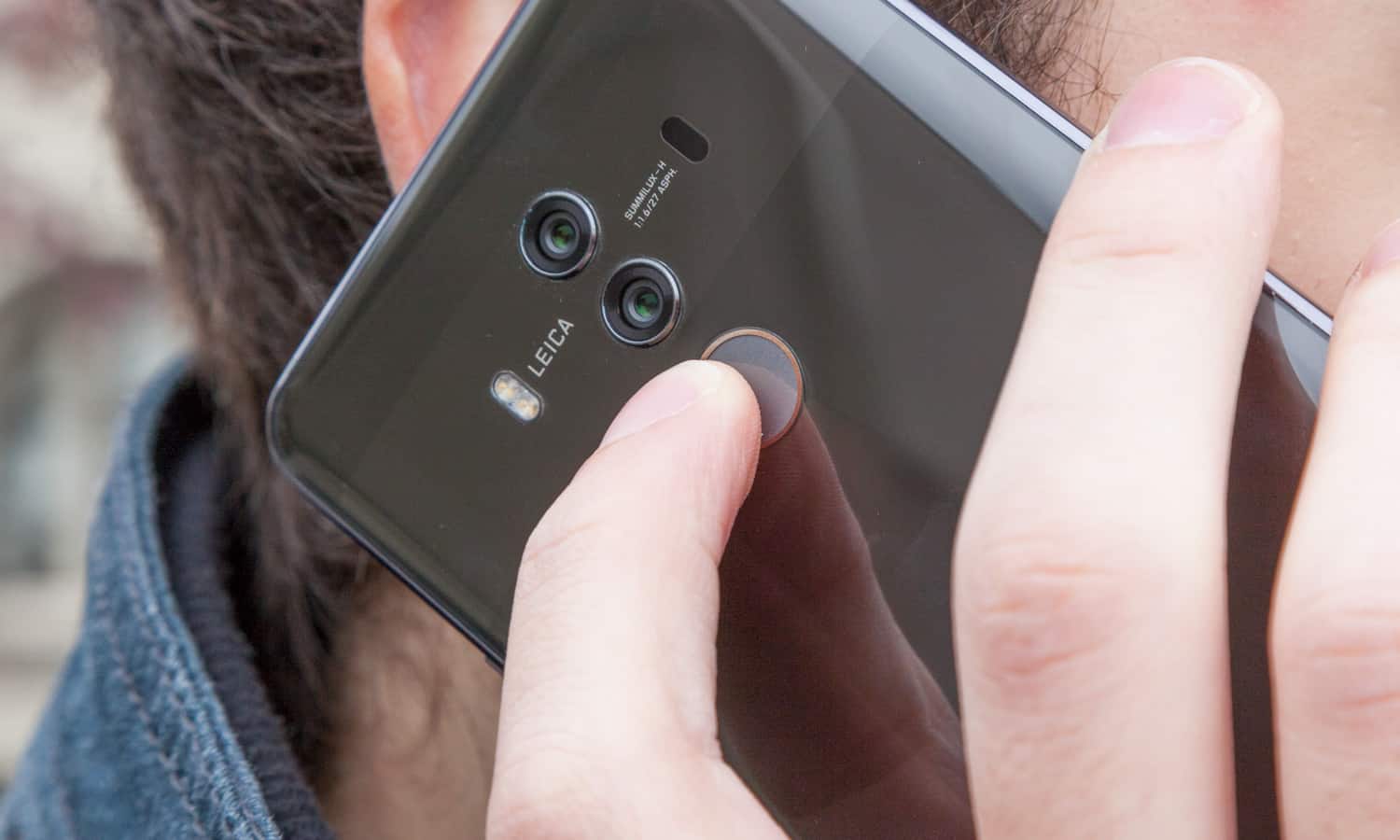
A few weeks into 2018, it’s safe to say things haven’t gone to plan. The Mate 10 Pro is still coming to the U.S., with pre-orders starting next week. But when the phone lands, it will be without a carrier partner. AT&T backed away in early January, just before a partnership with Huawei was to be announced at CES. Now it appears that Verizon won’t offer Huawei phones either.
“You’re talking about the No.1 and No. 2 carriers in the U.S., and not having access to that distribution network,” said Ramon Llamas, IDC’s research manager for wearables and mobile phones, of the bind Huawei finds itself in.
But it’s not just the lack of a carrier partner that’s troubling Huawei, it’s the reason companies like AT&T and Verizon are reportedly shying away from the phone maker. Bloomberg, which broke the story on Verizon backing off of a Huawei partnership, suggests that both carriers faced pressure from the U.S. government to not do business with the Chinese phone maker. Reportedly, the U.S. fears that Huawei equipment could be used to by the Chinese government for spying.
We contacted Huawei for comment and it provided the following statement: We don’t comment on rumors, speculation or future roadmaps.
The concern is apparently great enough for one U.S. congressman to proposed banning the U.S. government from buying or leasing any phones or equipment from Huawei or ZTE, another phone maker out of China.
““Chinese commercial technology is a vehicle for the Chinese government to spy on United States federal agencies, posing a severe national security threat,” said Rep. Mike Conaway (R-Texas) in a statement introducing the Defending U.S. Government Communications Act earlier this month. “Allowing Huawei, ZTE, and other related entities access to U.S. government communications would be inviting Chinese surveillance into all aspects of our lives.”
A spokesperson for Conaway’s office told Tom’s Guide that the bill was influenced by a 2012 report from the House Intelligence Committee outlining potential security threats. Currently, Conaway is looking to line up additional sponsors for the bill to move it forward in Congress.
Stepped-up government pressure is the last thing Huawei needs as it’s looking to make more of a mark in the U.S. The company’s phones — whether built by Huawei or its Honor brand — have been available for years to consumers who knew how to track them down. “These are really good phones,” Llamas said of Huawei’s U.S. releases. “They look great. They last long. They function well.”
But Huawei’s phones are sold unlocked, without ties to any wireless carrier. A smartphone shopper in the U.S. could buy a Huawei phone like the Mate 10 Pro or Honor 7X and then obtain a SIM card from the carrier of their choice (at least if that carrier uses a GSM network — Huawei’s phones don’t work with CDMA). That’s an option some shoppers take, but the vast majority of U.S. phone users get their devices directly from carriers, leaving companies at Huawei at a disadvantage.
“It’s an uphill battle to sell [unlocked] devices,” Llamas said.
Rumblings about U.S. concerns over espionage are unlikely to help with that uphill climb, especially right before a U.S. product launch. Pre-sales for the Mate 10 Pro begin Sunday (Feb. 4) with the $799 phone slated to go on sale at Amazon, Best Buy, Microsoft, B&H and Newegg. Huawei is offering a $150 gift card to customers who pre-order before the phone’s official launch on Feb. 18.
Huawei’s response to this latest setback will play a large role in what happens now.
Could the government’s whisper campaign against Huawei make customers think twice about buying a Mate 10 Pro — or any phone from the company? “That’s almost giving Huawei too much credit,” said Avi Greengart, research director for consumer devices at GlobalData. “Consumers aren’t worried: they don’t even know [Huawei] is an option.”
Just the perception of a threat, though, could dissuade anyone in the market for a phone, according to IDC’s Llamas, especially with the news that AT&T and Verizon are steering clear of Huawei.
“Even if some concerns are unfounded, do you want to roll the dice?” Llamas added.
Huawei’s response to this latest setback will play a large role in what happens now, Greengart said. “It’ll depend on whether Huawei continues on its plan to market itself,” he added. “If it doesn’t, consumers don’t know Huawei.”
Chinese phones come under periodic scrutiny in the U.S., especially whenever malware is discovered on a device developed overseas. But this latest imbroglio seems largely focused on Huawei, even with Conaway’s bill also targeting ZTE. That’s because ZTE already enjoys a relationship with AT&T, which offers the phone maker’s devices both at its own store and through its Cricket prepaid subsidiary. Alcatel, which is owned by China-based TCL, sells its phones through Cricket, T-Mobile and other carriers as well.
“I don’t see them having the faucet turned off the way the U.S. has with Huawei,” Llamas said.
GlobalData’s Greengart notes that all sorts of Chinese companies sell mobile devices and electronics to consumers in the U.S. “some with good reputations, some of whom have been damaged by scandal.”
“Lumping together every Chinese company in one fell swoop is problematic,” Greengart added.

